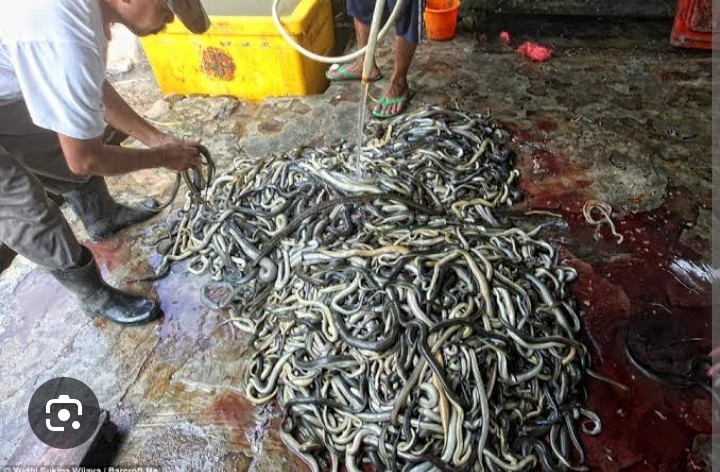We will start with the Frequently Asked questions.
Is Snake Farming Legal in Kenya?.
Snake farming in Kenya is allowed but one has to. apply for a license. Some of the requirements include prove of land where. the farm will be located and the farm management.
Is it a profitable business?
Snake farming business involves the rearing of various snake species for commercial purposes. It is a very highly profitable business for anyone who dares venture into it because of the risk associated.
There is higher demand of venom in the global market, hence if a farmer keeps both venomous and non venomous snakes, he or she will reap huge. Remember snakes can be exported as food, they can also be used to produce medicines and most importantly sweet wines.
Snake farming in Kenya is a lucrative venture that offers substantial financial rewards for those willing to invest time and resources. This article provides a comprehensive guide on how to start snake farming in Kenya, including its advantages and disadvantages, potential profits, legal requirements, suitable snake housing, the time snakes take to mature, non-venomous snake species, and potential markets outside Kenya.
Advantages of Snake Farming in Kenya
Snake farming presents several advantages, making it an attractive venture for aspiring entrepreneurs. First and foremost, snake farming requires relatively low startup capital compared to other livestock ventures, such as poultry or cattle farming. Additionally, snakes are resilient creatures that require minimal care and can thrive in various environments, making them an ideal choice for farmers with limited resources.
Furthermore, snake farming is a sustainable and eco-friendly venture that contributes to biodiversity conservation. By breeding snakes in captivity, farmers help reduce the pressure on wild populations, which are often exploited for their skins and meat. Moreover, snake farming can create employment opportunities in rural areas, contributing to poverty alleviation and economic development.
Disadvantages of Snake Farming in Kenya
Despite its many advantages, snake farming also presents some challenges that prospective farmers should be aware of. One of the main disadvantages is the risk of snake bites, which can be fatal if not treated promptly. Therefore, farmers need to take adequate precautions, such as using proper handling techniques and wearing protective gear, to minimize this risk.
Read more:Snake Farm in China: How A Farmer Makes 1Billion USD From 3 Million Snakes Yearly
Additionally, snake farming requires specialized knowledge and skills, particularly in snake husbandry and veterinary care. Farmers may need to invest time and resources in training to acquire these skills, which can be challenging for those with limited experience in snake farming.
Legal Requirements
Before starting a snake farm in Kenya, farmers need to comply with legal requirements and regulations. This includes obtaining permits and licenses from the relevant authorities, such as the Kenya Wildlife Service (KWS), which regulates the breeding and trade of wildlife species, including snakes.
Farmers should also ensure compliance with animal welfare laws and regulations to protect the health and well-being of the snakes. This includes providing adequate housing, food, and veterinary care for the snakes, as well as maintaining proper records of their breeding and sales activities.
Suitable Snake Housing
Snakes require specific housing conditions to thrive in captivity. The housing should mimic their natural habitat as closely as possible, including providing adequate space, temperature, humidity, and hiding spots. Suitable housing options for snakes include terrariums, cages, or snake pits, depending on the species and the scale of the farm.
Time Taken for Snakes to Mature
The time it takes for snakes to mature varies depending on the species. Generally, snakes reach sexual maturity between one to three years of age, although some species may take longer. Farmers should consider the maturation time of the species they intend to farm when planning their breeding and sales activities.
Non-venomous Snake Species
For those concerned about the risks associated with venomous snakes, there are several non-venomous snake species suitable for farming. These include corn snakes, ball pythons, and king snakes, which are popular choices among snake farmers due to their docile nature and ease of care.
Potential Markets Outside Kenya
The demand for snake products extends beyond Kenya’s borders, presenting lucrative export opportunities for snake farmers. Countries such as China, India, and the United States are major importers of snake skins and venom, offering a vast market for Kenyan snake farmers.
Read more:China Dog Farm: How Over 10 Million Dogs Are Raised Yearly For Meat .
To tap into these markets, farmers need to comply with international trade regulations and obtain the necessary permits and certifications. Additionally, farmers should conduct market research to identify the specific requirements and preferences of potential buyers, ensuring they meet the quality standards and specifications.
Conclusion
In conclusion, snake farming in Kenya is a profitable venture that offers numerous advantages for aspiring entrepreneurs. By understanding the requirements and challenges of snake farming and leveraging the market opportunities, farmers can establish successful snake farms and reap the financial rewards.
With the right knowledge, skills, and resources, snake farming can be a sustainable and lucrative venture that contributes to economic development and biodiversity conservation in Kenya and beyond.

